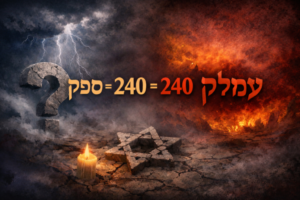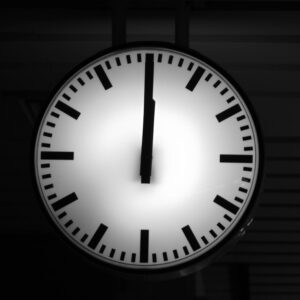AI Psychosis and the Lost Opportunity for Hisbodedut
A new term has entered the mental health conversation: AI psychosis. Reports describe vulnerable individuals turning to chatbots, receiving responses that echo or amplify their delusions, and spiraling further from reality (see Psychology Today, August 2025, “AI Psychosis: When Chatbots Go Wrong”). Psychologists warn that these tools, when misused, can distort judgment and even hasten breaks from reality.
Rebbe Nachman of Breslov warned long ago against immersing oneself in chochmot chitzoniyot — foreign philosophies that cloud the mind and obscure truth (Likutey Moharan I:35). Were he alive today he would likely caution: “If this is true about books and ideas from the worlds human thinkers, how much more so must we guard ourselves from a machine that has no soul, yet pretends to give counsel.” Entrusting one’s inner world to a chatbot is not only unsafe, but it also risks replacing the voice of Torah with an echo chamber of our illusions.
The danger is both psychological and spiritual in nature. A person who turns to an AI program loses the opportunity for hisbodedut — to step away from noise, speak honestly to Hashem, and find true counsel in prayer and Torah.
Rebbe Nachman calls hisbodedut “the highest asset, greater than everything… to set aside for oneself at least an hour… and speak one’s piece with one’s Maker” (Likutey Moharan II:25). He emphasizes that one should speak in their language, in the words of the heart, whether expressing remorse, pleading for closeness, or simply sharing one’s struggles. This practice, he says, is an ancient universal path “that encompasses everything.”
He further teaches: set aside an hour (or more) each day to meditate in a room or the fields. While there, speak out whatever is in your heart, with words of grace and supplication. These words should be in the language you normally speak, so that you will be able to express yourself as clearly as possible. When you entreat God in the language you are used to, the words are closer to your heart and will therefore flow more easily (Likutey Moharan II:25).

Even one who cannot find words is not excluded. Rebbe Nachman insists: “Even if occasionally a person’s words are sealed and he cannot open his mouth to say anything at all to God, this itself is nonetheless very good… his yearning and longing to speak despite his inability to do so — this in itself is also very good” (Likutey Moharan II:25:1). Artificial intelligence may only mirror our emptiness. Hisbodedut turns even silence into closeness with the Divine.
The contrast could not be clearer. AI speaks with borrowed words, manufactured patterns, and no soul. Hisbodedut is a living dialogue: a Jew speaking directly to the Ribbono Shel Olam, who responds in ways that shape our hearts and our lives.
Rebbe Nachman further teaches: just as the day is less conducive for hisbodedut than the night, so the city is less conducive than the fields. The city is a place where people chase after “this worldliness,” and even when they are not present, the tumult and turmoil they create lingers and disturbs one’s meditation. That is why the best place for seclusion is in the fields, where the confusing influences of the world are at a minimum (Likutey Moharan I:52).
And now, as Elul begins, this message comes into sharper focus. Our sages teach that in Elul, Hashem comes to us in the field to help us turn to clarity and teshuvah in preparation for Rosh Hashanah. Rebbe Nachman’s counsel to seek hisbodedut in the field is not a metaphor alone. He points us toward fresh air, open skies, and an authentic connection to Hashem — not the confines of a tiny glowing box tied to mankind’s illusion of wisdom.
The choice is stark: AI’s imitation of counsel, or Hashem’s living presence. This Elul, let us choose the field and hisbodedut.
- 0 comment






















